23 Dec 2025
|12 min
Product management books
Discover the top product management books recommended by the Lyssna community.

Product management is a multifaceted discipline. A good product manager needs to be able to prioritize what’s going to go into creating a new product, oversee the development process, and understand the intersection of the creative process with business. And that’s what makes product management such a fantastic role. It’s ever-evolving and there’s always something new to learn.
We asked our Lyssna community to share the best product management books they've found helpful in expanding their knowledge and advancing their careers. Here are their top nine recommendations.
A quick note: There’s often overlap between product management and project management books. On this list, you’ll find a couple of books that are more project management-focused that our community also found relevant to their careers.
1. Good to Great | Jim Collins
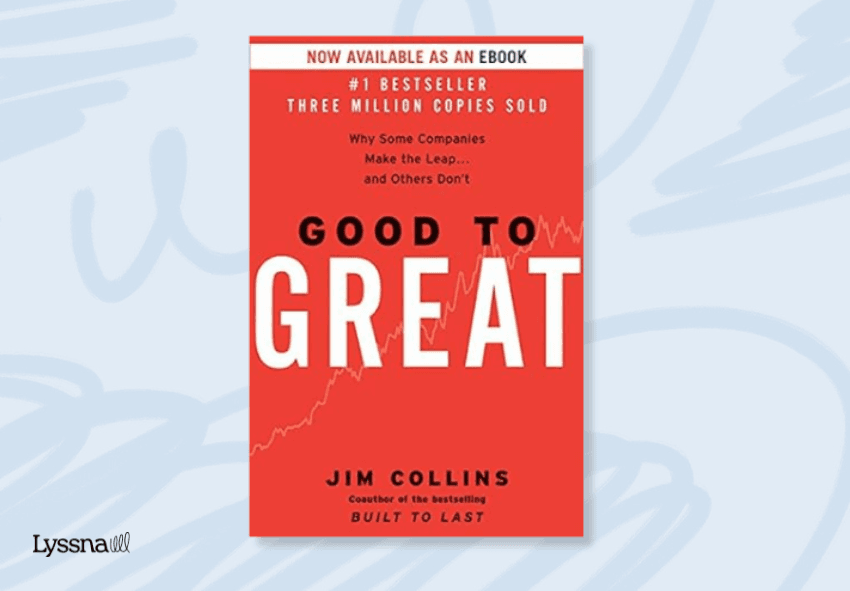
Good to Great is the result of research focusing on eleven companies and how leadership, culture, embracing new technologies, and business strategy set them apart from their competition. For product managers wanting to go deeper into business success, this is one of the best books to learn from.
Being a product manager means being the anchor on development teams, and of particular relevance is the chapter on leadership. Collins discusses how qualities like discipline, humility, accountability, and giving credit where it's due all make for better leaders. Learning how people in leadership roles at companies like Kimberly-Clark, Gillette, and Fannie Mae faced challenges and what they did to rise above them is inspiring to learn about and shows the good qualities of leaders in action.
It’s easy to get caught up in the more imaginative and fun aspects of the development process, but the products we work on serve a higher purpose in helping both customers and organizations reach specific goals. If you’re not interested in formal product management books, or trendy business books filled with buzzwords, you’ll Good to Great is a good option for you. It tells stories and shares real-life lessons in an interesting and educational way.
Elevate your research practice
Join over 320,000+ marketers, designers, researchers, and product leaders who use Lyssna to make data-driven decisions.
2. A Guide to the Project Management Body of Knowledge (PMBOK® Guide), Seventh Edition
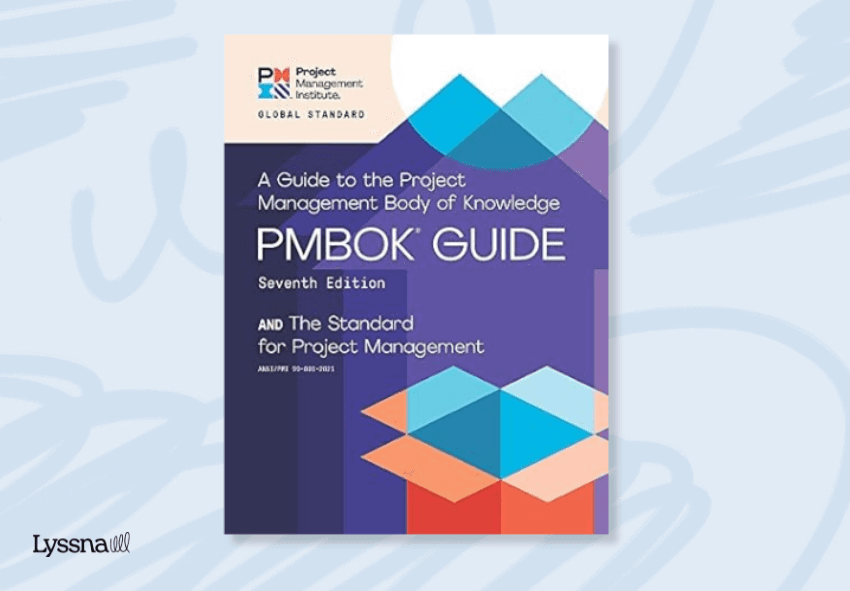
A Guide to the Project Management Body of Knowledge isn’t a book you’ll grab at the end of the day to unwind while you sip on your favorite relaxing cup of tea. But it is a comprehensive reference book that’s the go-to for those studying for the Project Management Professional (PMP) certification exam. Whether you’re preparing for this certification or currently working in a product role, understanding the distinction between product manager vs product owner is crucial — and this book serves as a foundational reference for both paths.
With sections covering topics like project manager responsibilities, how to plan and execute a project, as well as how to facilitate and manage communication, any questions you may have will likely be answered within its pages.
3. The Design of Everyday Things | Don Norman
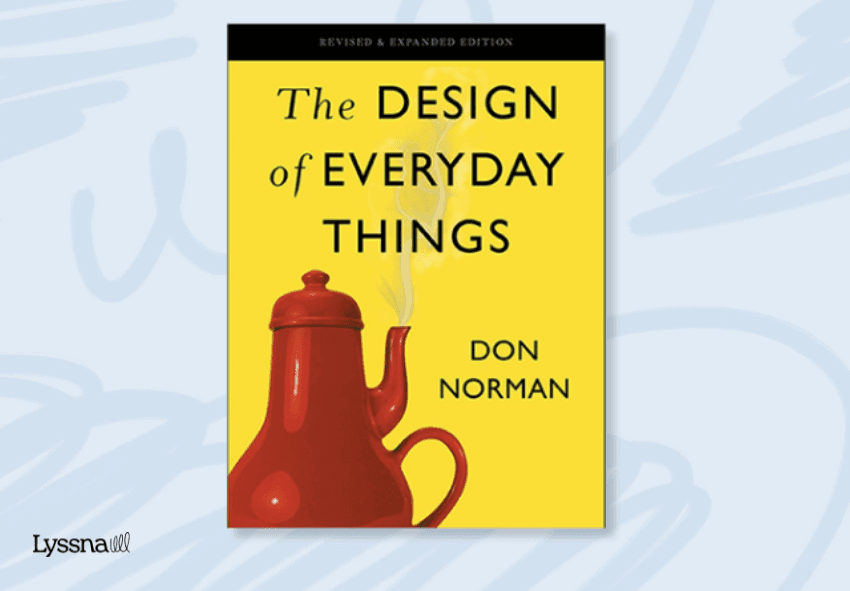
If you’re a product manager, you should be proficient in how to define project milestones, have good communications skills, and know how to navigate rounds of design feedback. Along with knowing product development protocol, you also need to understand the principles of design. The Design of Everyday Things is an accessible and informative read, and a great book for those without any technical design experience (although it also has a level of depth that even the most well-versed design nerds will find enlightening).
This book not only explores design principles and how they apply to the common objects we use, but it’s a fun read. Don Norman’s lighthearted crankiness towards bad design – like his gripes about poorly marked doors or complaints about his wrist watch – is hilarious and makes important points about how to design user-friendly products.
When you’ve finished reading this book, you’ll be fluent in the language of product design, understand the psychology of usability, and have a solid grasp of ux design principles. You’ll recognize affordances and signifiers everywhere you go, giving you new perspectives in how you look at commonplace objects like trash cans and thermostats, and also how you view the products you’re working on.
4. Leading from the Middle | Scott Mautz
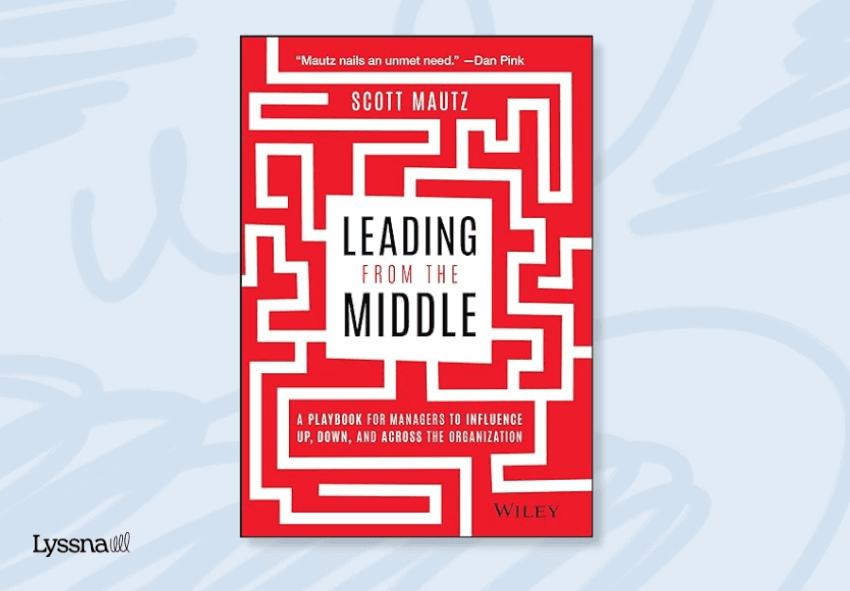
Why does being in the middle get a bad rap? Depending on how you look at it, sometimes the middle is the place to be.
Leading from the Middle is for anyone who finds themselves sandwiched between reporting to those in higher management and being responsible for teams, which is often the nature of product management. This is a unique space, with product managers holding the very important role of connecting the goals and vision of those in senior leadership roles with the teams that bring these ideas to life.
If you’re after product management books that aren’t afraid to expose the messier sides of product development, like interdepartmental politics, shifting strategies, conflicts, and emotion-led decision making, Leading From the Middle’s frank discussions will help you to better understand these challenges and how to circumvent them.
Leading from the Middle is a great read for product managers, as it offers an approach to incorporating business tactics while addressing the crucial soft skills needed for fostering strong connections and uniting stakeholders.
5. Decode and Conquer | Lewis C. Lin
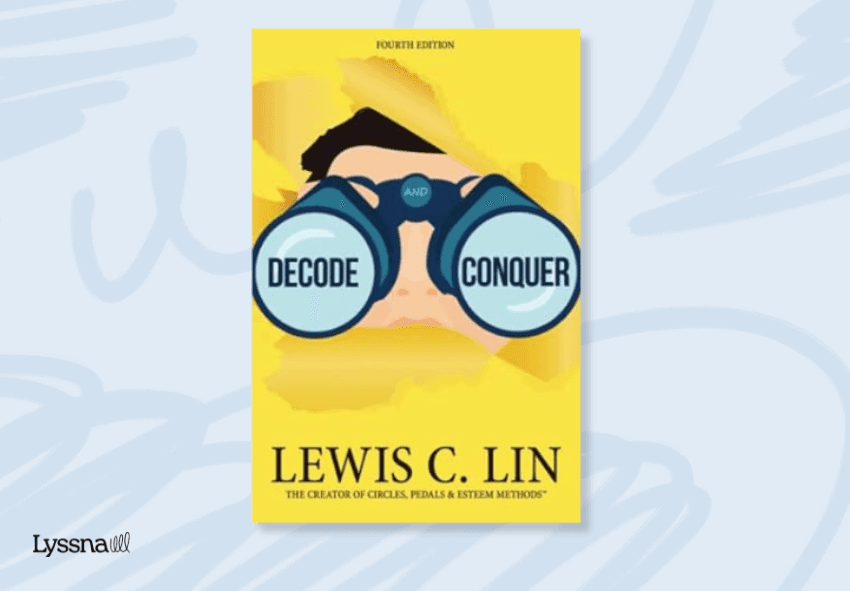
Are you interested in landing a job at a big company like Google, Microsoft, or Amazon? Lewis C. Lin’s Decode and Conquer is an illuminating and practical guide for product managers or others hoping to land a new tech gig.
The book is filled with helpful job interview guidance. From strategies in answering technical questions to advice about presentation-based interviews, you’ll be ready for almost anything that could be thrown your way.
Lin has even formulated his own system called CIRCLES (Comprehend, Identify, Report, Cut, List, Evaluate, and Summarize) for approaching interview questions. Much like the STAR framework (Situation, Task, Action, and Result) for interview prep, CIRCLES is another practical strategy, offering a thoughtful and measured approach. We love methods like CIRCLES that help you prepare for job interviews, and this information alone makes Decode and Conquer one of the best books for product managers looking for a new role.
6. The Lean Startup | Eric Ries
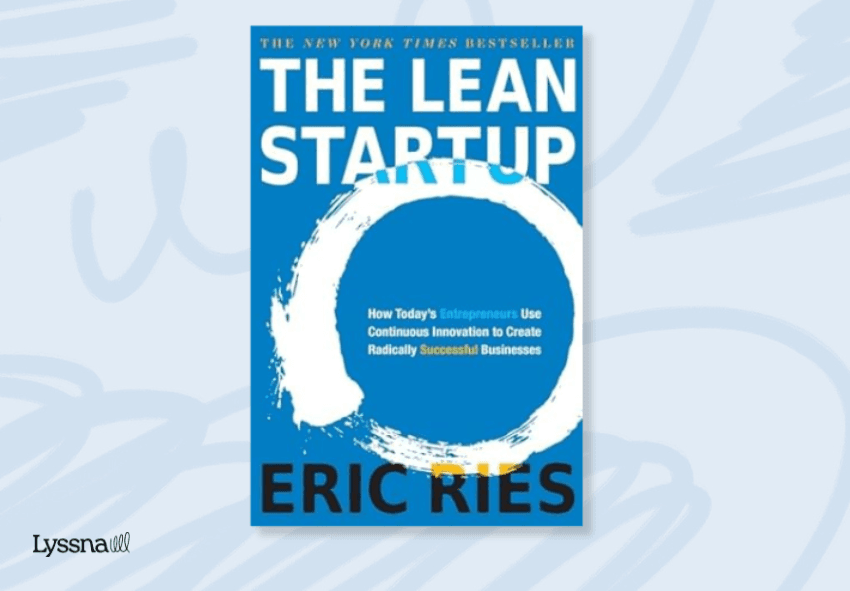
When The Lean Startup first hit bookstores in 2011, companies like LinkedIn, Twitter, and Amazon had the tech industry buzzing, and Instagram was on its way to being snatched up for what now seems like the paltry sum of one billion dollars. The intoxication and subsequent hangover left by the first tech bubble bursting seemed to have lifted, with investors, entrepreneurs, and tech creatives caught up in a whirlwind of excitement.
The Lean Startup was published at just the right time. It gave a lot of useful information about new ways to manage a startup. This information was especially helpful for people working at startups or companies that wanted to become the next big thing.
Author Eric Ries has seen both success and failure in his career. He isn’t afraid to be vulnerable and honest about why things went wrong, but also doesn’t keep advice to himself on how to succeed. His approach to writing about tech and startups isn’t overly academic, but rooted in his personal experiences, making The Lean Startup very relatable.
For product managers and others working at companies where adapting to change must happen quickly, The Lean Startup offers plenty of great advice, and will complement the other product management books you may have on your shelves
7. Cracking the PM Interview | Gayle Laakmann McDowell
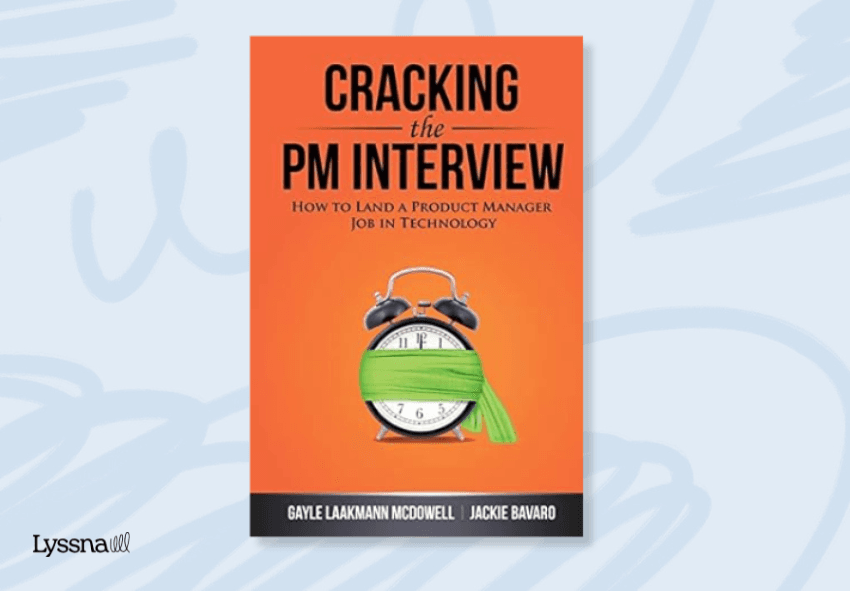
Whether you’re an aspiring project or product manager, or are looking to make moves to a new role, Cracking the PM Interview stands out as one of the best books to help prepare. With sections covering how to punch up your resume, advice about pivoting from roles in engineering and design to project management, to polishing your resume, you’ll find something that'll help you out. We especially like the real-world examples that discuss how PM interviews are run at companies like Dropbox, Apple, and Google, which are no doubt applicable to almost any product management role, too.
These days, even landing an interview feels like a major win. If you’re looking for a book to help boost your confidence, Cracking the PM Interview is a must-read.
8. Inspired: How to Create Tech Products Customers Love | Marty Cagan
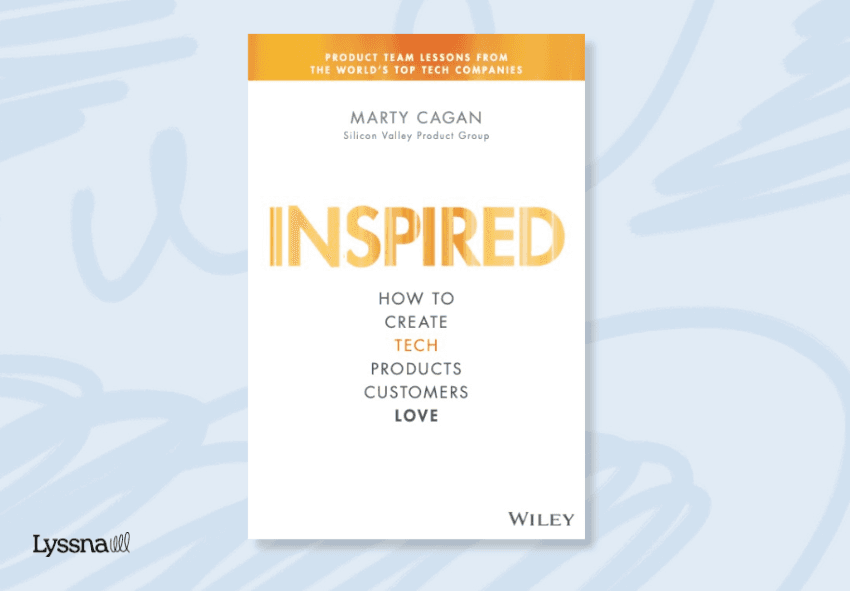
In his book Inspired, Marty Cagan provides a wealth of information on the product development process, focusing on the importance of creating products that cater to the needs of customers. You’ll find interesting sections related to product discovery, user testing, gathering feedback, and iterative product development.
Cagan shares a lot of wisdom from his own career and also includes sections dedicated to those who have held high-profile tech roles. For example, Camille Hearst shares with us the methods employed by Apple to expand iTunes. We also get to read about the development of Google AdWords from Jane Manning. These candid profiles really drive home the points that Cagan makes about developing successful products.
With its balance of advice and real-world stories from those who have worked at large tech companies, you’ll find Inspired one of the best books for learning about how successful tech companies operate.
Your go-to user research platform
The best teams use Lyssna so they can deeply understand their audience and move in the right direction — faster.
9. Measure What Matters | John Doerr
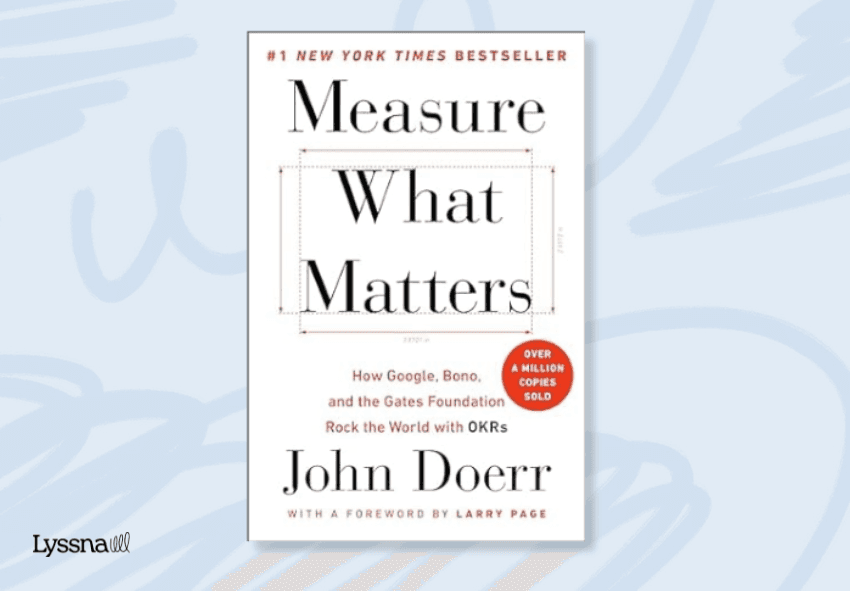
If you're not familiar with the Objective and Key Results (OKR) system, let’s start with a quick history lesson. OKRs originated with Andrew Grove, an individual who worked at Intel in the 1970s, who formally defined it in his 1983 book, High Output Management. John Doerr, the author of Measure What Matters, also worked at Intel, having attended a workshop led by Grove. Later in his career, Doerr helped popularize OKRs while working at the venture capital firm Kleiner Perkins.
Along with detailing all that encompasses OKRs, Measure What Matters also gets into practical strategies that product managers can bring to their teams. Discussions about collaboration, getting stakeholders aligned on goals, communication, and transparency will give you plenty of insights on how to perform in your role as a product manager.
What also makes this book stand out from other product management books are the real-world examples and case studies. The use of OKRs by Google, MyFitnessPal, Intuit, Google, and Youtube show how OKRs were adopted, put into action, and shaped to fit the specialized needs of each company. By learning from the victories and challenges at these companies, you can be better prepared in steering your teams towards success.
If you’re looking for a great product management book that relies on real-world insights, Measure What Matters will enrich what you know as well as give you new tools to effectively manage a busy product development team.
--
Jeff Cardello is a freelance writer who loves all things tech and design. Outside of being a word nerd, he enjoys playing bass guitar, riding his bike long distances, and recently started learning about data science and how to code with Python.
You may also like these articles


Try for free today
Join over 320,000+ marketers, designers, researchers, and product leaders who use Lyssna to make data-driven decisions.
No credit card required






